Review
Orlando
Belvoir St Theatre, Sydney
Rating: ★★★☆☆
The first minutes of Belvoir St Theatre's new adaptation of Virginia Woolf’s novel Orlando showcases the bold and ambitious approach its creators have taken to its much-loved source material.
Elizabethan court poet Nick Greene (actor Nyx Calder) opens the show with a glorious monologue on an all-powerful divinity, painting a picture of the universe’s wonders — the moon, planets, stars — gliding across an inky landscape. These heavenly creatures literally do so: personified as gaunt, silver figures on roller skates, they circle around a snow ring that highlights the bare stage. Soon, the orbit morphs to centre around Queen Elizabeth I (Amber McMahon), who stands tall waiting for her Boy Orlando.
More than an opening flourish, this monologue serves as a pointer that what follows can’t be read logically, but as fantastical acts attributable only to divine intervention.
Right away, this scene teases a diversion from Woolf’s novel. Where that Orlando welcomes us to its world by chopping off a Moor’s head, the Belvoir production opening is less gritty, more romantic.
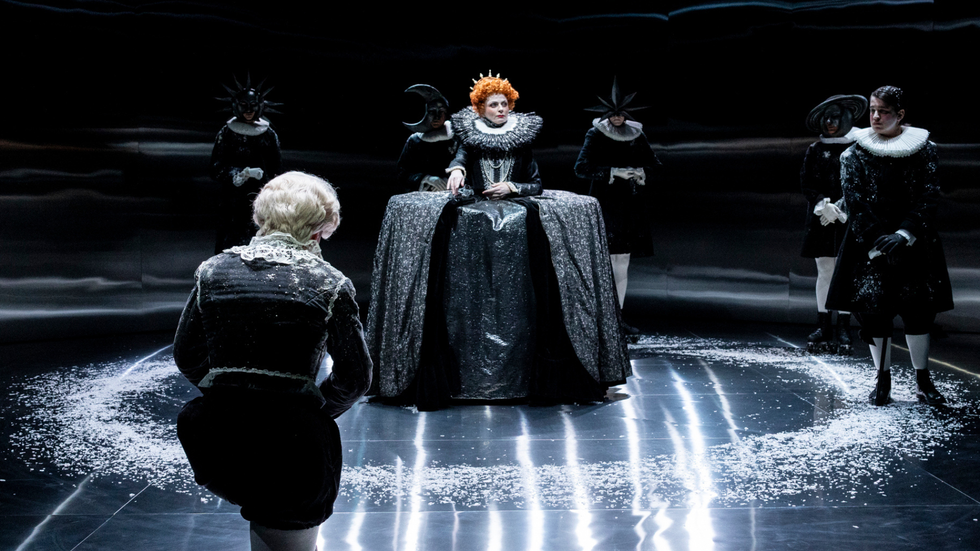
Indeed, beneath the fantastical plot, the tension between the romantic and gritty social commentary is at the centre of the comparison between novel and play.
In all iterations, Orlando is a love letter first and foremost.
Woolf’s novel was inspired by and written for her secret lover English author Vita Sackville-West. It follows the titular character, a seemingly ordinary nobleman of Elizabethan England whose life takes an extraordinary turn as they inexplicably live for centuries, change sex midway through and navigate shifting eras of societal attitudes, all while holding tight to their passion for poetry and love.
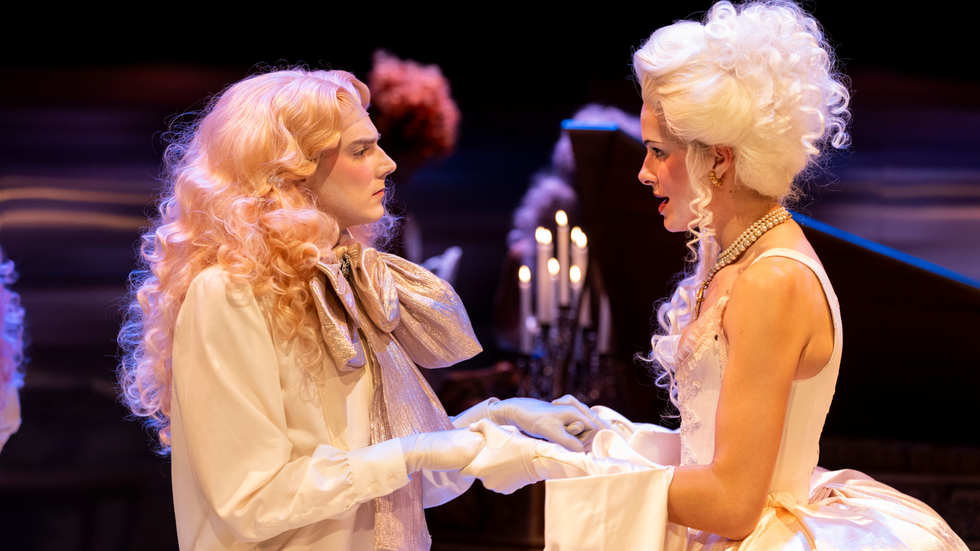
The character’s elasticity has been tested across its many adaptations since the novel’s 1928 publication. For example, Sally Potter’s 1992 film version, starring Tilda Swinton, reframes Woolf’s playful narrator, via stylised fourth-wall breaks, to recentre Orlando’s gender and societal dilemma to the first person. And in Australia, the Sydney Theatre Company 2015 production leant instead into intricate theatricality. As Elsie Yager and Carissa Licciardello, the co-adaptors of this production, put it, "Orlando is free to transcend the individual – and become an idea, available for anyone who needs it to take up."
Belvoir takes up that invitation, expanding Woolf’s love letter into a communal one addressed to the queer and gender-diverse community.
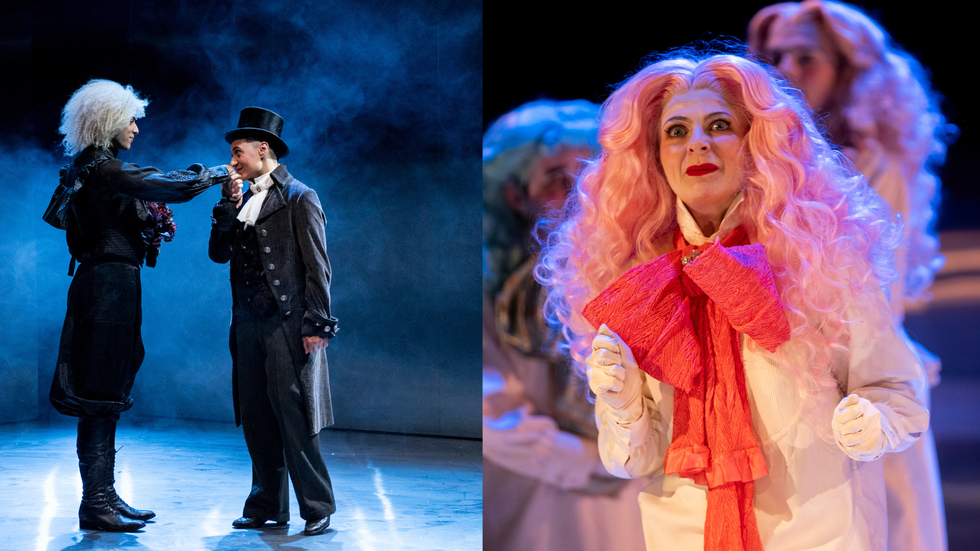
It was a full house performance on the night I attended. The audience was split between bright-eyed high school students and older theatregoers murmuring delighted recognition at Woolf’s text. The cast leant into the energy of a full house, their magnetic embodiment of the characters a treat to the connoisseurs, while their teasing winks to the younger audiences elicit loud cheers.
The lead role is played by different actors (Janet Anderson, Shannen Alyce Quan, Nic Prior and Zarif) across four different eras, presenting Orlando’s elusive narrative as fractured vantage points rather than a continuous self.
Counterbalancing that character’s fragmentation, Orlando’s various lovers are all played dazzlingly by actor Emily Havea. Her characters offer the lead character a way out of the misery of societal cages, guiding Orlando through their crises of identity and enabling the epiphanies that bridge each transformation. Havea reaches her peak in a cabaret-style number in Act 2. Co-adaptor Elsie Yager has described the show as "poetry on stage," and this feels most true in Havea’s performance.
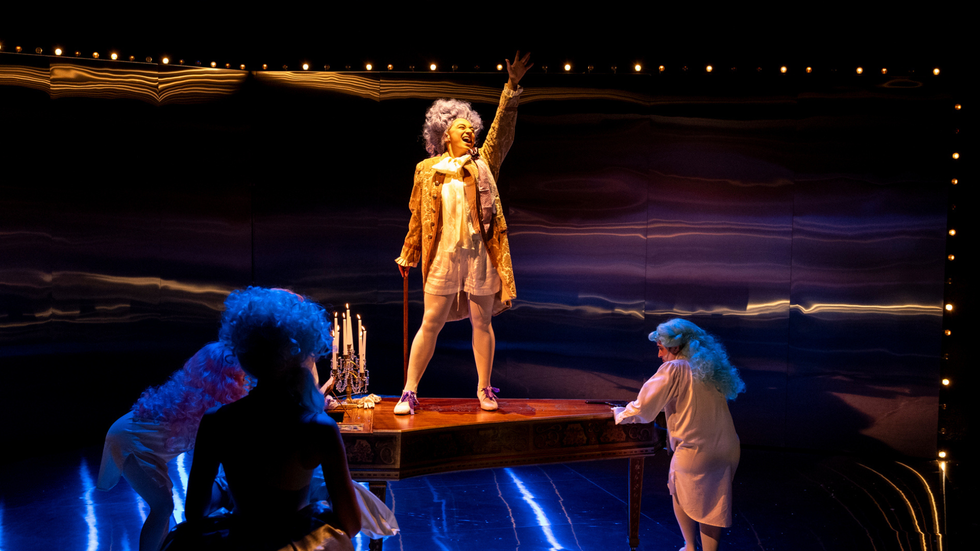
Structurally, this production resembles director Licciardello’s 2023 Belvoir outing, Scenes from a Climate Era: less a linear narrative than a collage of vignettes. Each act spotlights a different social order working against its Orlando before closing with a reflective monologue that opens the door to the next era; always steering the audience toward the theme, if not always the larger plot.
For example, in Act 1, Lord Orlando loses his paramour Sasha to duty and crown, marking the first fracture and the first desire to shed himself of obligation. That wish is granted in the shift to Lady Orlando, until society’s rigid rules for women press in, sending her spiralling into another crisis — and so the cycle repeats.
This reshaping makes sense. Yet the trade-off is felt: the play at times resembles an essay on social change, oftentimes pulsing with political commentary rather than love.
It extends to the play’s finale. Belvoir’s Orlando ends not with Woolf’s oak tree, as in the novel, but in the fluorescent grime of London’s underground. This change continues a long history of Orlando's ending reflecting its time: the novel ends at Woolf's present day of 1928; Potter’s film ends at its present day of 1992, and this adaptation ends at ours.
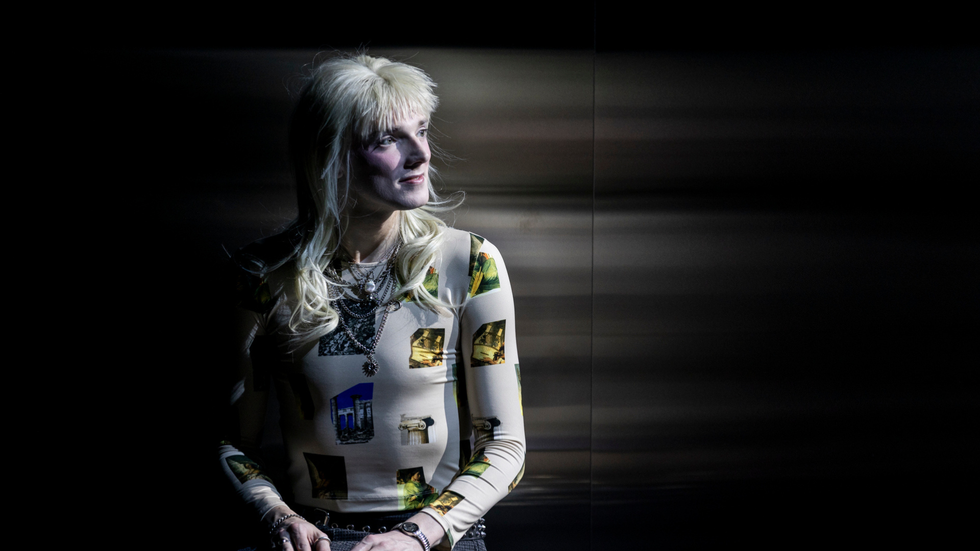
Some will call the staging’s finale unromantic, even didactic. Yet to this reviewer, the romance is here too.
Actor Nic Prior's Orlando performs the guttural cry to themself, as earlier Orlandos have done to invite the arrival of a new self. But this time, the ensemble converges instead in a colourful queer crowd. The final beat has them fill the stage, while aloof to the audience looking down upon them from the raked seating.
At the centre, Orlando is finally content. Maybe that's as romantic and poetic as a contemporary love story could be.
Orlando is on at Belvoir St Theatre, until September 28, 2025
This review was supported through UNSW's ARTS2126 Reviewing the Arts course.
Related stories
Toby Schmitz in Belvoir's 'Grief' shows profound complexities of loss
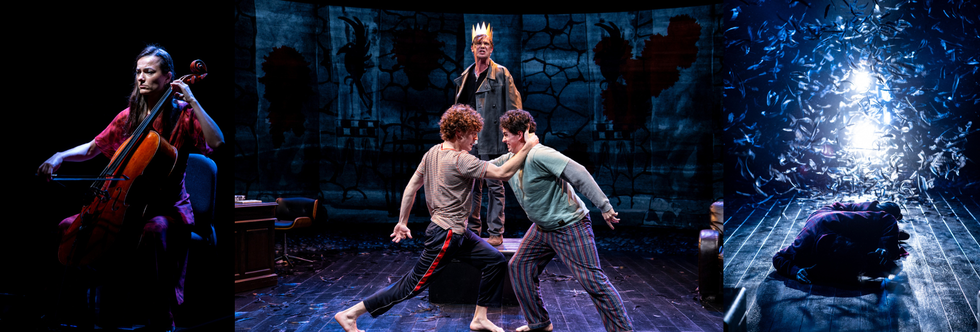 Toby Schmitz in Belvoir's 'Grief' shows profound complexities of lossBrett Boardman/Belvoir St Theatre
Toby Schmitz in Belvoir's 'Grief' shows profound complexities of lossBrett Boardman/Belvoir St Theatre'Polygamy' offers promising quandaries, unfinished threads
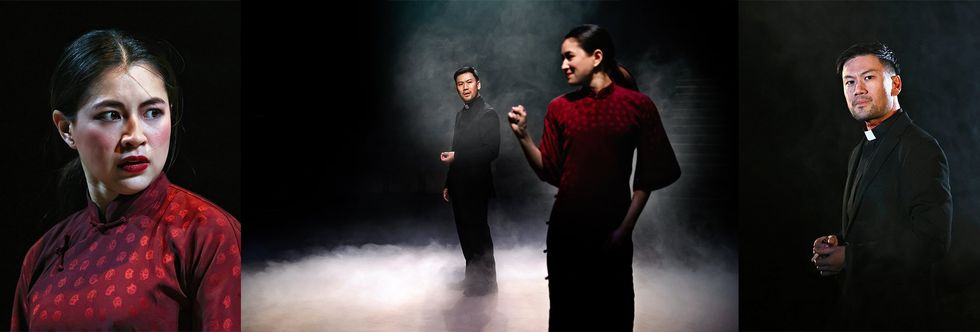 Review: 'Polygamy' offers promising quandaries, unfinished threadsPRUDENCE UPTON/STC
Review: 'Polygamy' offers promising quandaries, unfinished threadsPRUDENCE UPTON/STCFresh perspective on student-teacher 'romance'
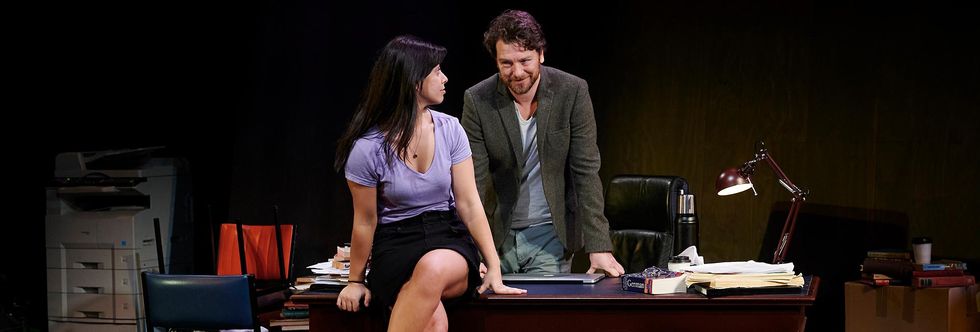 Review: Fresh perspective on student-teacher ‘romance’BELVOIR
Review: Fresh perspective on student-teacher ‘romance’BELVOIR Niki Almira (they/them) is in their third year of a Bachelor of Arts (Creative Writing, Film Studies Minor) at UNSW Sydney. Their interests are a mixed bag of skittles, ranging from classical literature to the latest trending baby animals.






